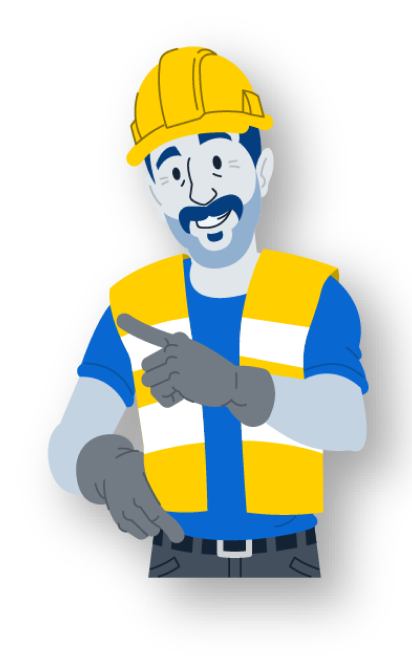Without an understanding of who you are as a company, it’s challenging to figure out what your goals are and how you want to accomplish them. Before you can create a training program, build better processes, or hire a new sales team, you should define and enforce a strong company culture.
“You could have the most legendary athletes in history on the same team, but if they play different sports you’d be in trouble. Aligning a team – much like aligning a company – is the key to success and unlock the potential of each person on the team.”
Your company is full of rockstars and each of them contribute a different set of skills and passions to help your company win. To create a truly successful team out of those rockstars, you have to establish a mutual dream, vision, and purpose within that culture. This will help make guys in the field feel connected to those in the office, preventing differences in skillsets from feeling like your employees are playing in completely different sports when they should be working together
We sat down with Nathan Tebedo, a coach at Contractor Coach PRO, and got him to spill his secret recipe for discovering, documenting, and implementing a solid company culture.
Dream
Before any concrete planning takes place, you need a dream. A dream provides an overarching understanding of why you’re doing what you’re doing and helps create a vision for the end goal.
Vision
Begin to ask yourself where you see your business in three years. Document the following questions in detail so you can refer back to them as you move through the process:
- How many sales employees do I want?
- What’s my revenue goal?
- What is the office aesthetic?
- What does it feel like to work here or be a customer?
- How do we communicate with one another?
Purpose
This step may be the most difficult. A purpose statement is a short phrase that describes company culture and company purpose. Once developed, put the phrase everywhere from trucks to business cards. Believe the statement and live by it.
First, get your core team together to answer the following questions:
- What are we offering?
What are we offering to employees, the community, customers, and the environment? - Who is the target market?
Who is the ideal customer? Where are they? What are their demographics? On the flip side, who do we not want? - What are we trying to accomplish?
Other than the generic answer of fixing roofs and windows, are we changing the way people view contractors? Are we providing an educational place where people learn about the industry? Do we help employees with self-advancement and provide careers for others? - What is our unique value?
What sets us apart from everybody else? What makes us different? - What competitors do we admire?
Who are we competing with that does things that we like? Who do we not admire? List those people and their certain qualities.
Purpose Statement
It’s absolutely key to bring in all employees on this next portion. Allow everyone’s creativity and personality to structure the purpose statement. Collectively come up with 25 – 35 key words or phrases that describe your company. Words like integrity or passion. Start to see how themes develop, pull them from the list, and mix and match them to build your purpose statement.
Contractor Coach PRO’s statement is: “We coach contractors to win.”
Core Values
Core values describe the virtue of your company: ethical, professional, etc. Your core values provide the standard by which you treat employees and customers, train and hire new employees, or decide if a particular decision is right for you. You can always ask yourself if a decision aligns with the company’s core values.
List all the things that are important to you as a team or business. Then pick 3 to 5 words from the purpose statement and elaborate on what each word means. Display and memorize these in order to internalize your core values.
Mission
Start with your vision. The vision was the outlook of where you want to be/what you want your company to look like. In one year, what can you do to get yourself closer to that mission? Give the mission a catch name such as “operation domination.” Set a clearly defined goal such as gaining a 20% market share in an area. Make a list of what you may need to achieve that mission: how many salespeople are needed, the number of tracks, the amount in production, and revenue and profit margin.
Broadcast the mission of where you’re going and how you’re going to accomplish it. Post it next to your core values so everyone is on the same page.
Get rid of white noise that distracts you from achieving your one-year mission. Encourage accountability and commitment from all employees.
The Final Piece
Execution and implementation are the difference between changing the culture, or simply going through something that will fizzle out. The final question you should ask yourself is: If someone was to visit us and watch us work, what would they see that allows them to describe our culture accurately?
Thanks again to our friends at Contractor Coach PRO for putting together these tips for our CompanyCam users. Click HERE to set up a free coaching call with one of their coaches. Make sure to put “CompanyCam” when it asks who referred you!





